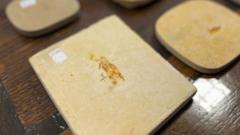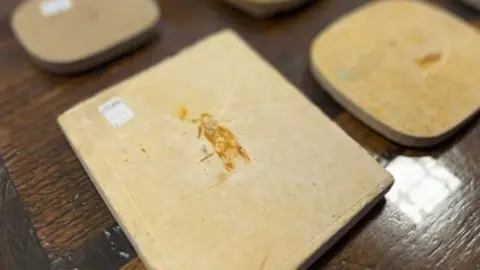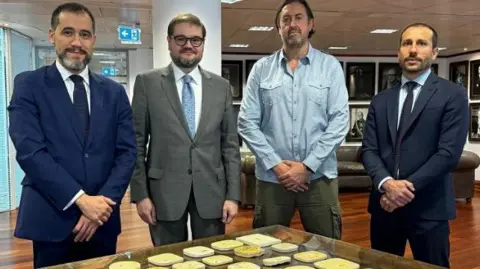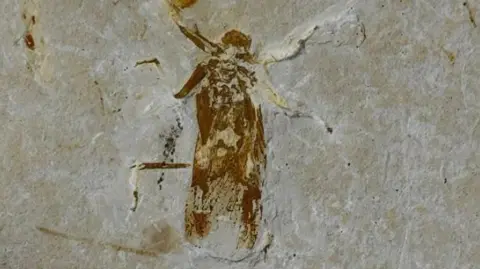This website uses cookies so that we can provide you with the best user experience possible. Cookie information is stored in your browser and performs functions such as recognising you when you return to our website and helping our team to understand which sections of the website you find most interesting and useful.

24 hours ago
Andrew Barton,BBC News
 North Yorkshire Police
North Yorkshire PoliceA collection of "irreplaceable" fossils seized in North Yorkshire after being smuggled out of South America have been returned to Brazil.
The 33 preserved insects worth thousands of pounds were recovered from a trader in Scarborough following an international investigation, police said.
Although the fossils had been illegally exported from their country of origin, the dealer found in possession of them believed they were legitimate and is not facing any criminal charges.
The Brazilian Embassy said the return of the fossils marked "a significant milestone in the protection of our natural and cultural heritage".
 North Yorkshire Police
North Yorkshire PoliceThe artefacts came from the Araripe Basin, a large fossil site in Brazil that is often targeted by the black market.
The investigation was carried out by North Yorkshire Police's force intelligence bureau, which is usually tasked with tracking down and extraditing fugitives who flee overseas.
Brazilian authorities informed Interpol that the items were on sale in Scarborough.
 North Yorkshire Police
North Yorkshire PoliceAfter PC Bradley Hay delivered the fossils to Brazilian officials in London, it was confirmed that they would be put on display in a museum once they had been flown back.
He said: "It’s been rewarding to use our international law enforcement network to repatriate these unique and irreplaceable artefacts that are part of Brazil’s natural heritage."
The same team of officers also returned a number of ancient vases, gold jewellery and bowls to Cyprus after they were offered for sale in North Yorkshire.
The consignment included prehistoric axe heads and Cyprian jewels dating from 400BC. They had also been illegally removed from the country.
Follow BBC Yorkshire on Facebook, X (formerly known as Twitter) and Instagram. Send your story ideas to yorkslincs.news@bbc.co.uk



 Africana55 Radio
Africana55 Radio 

